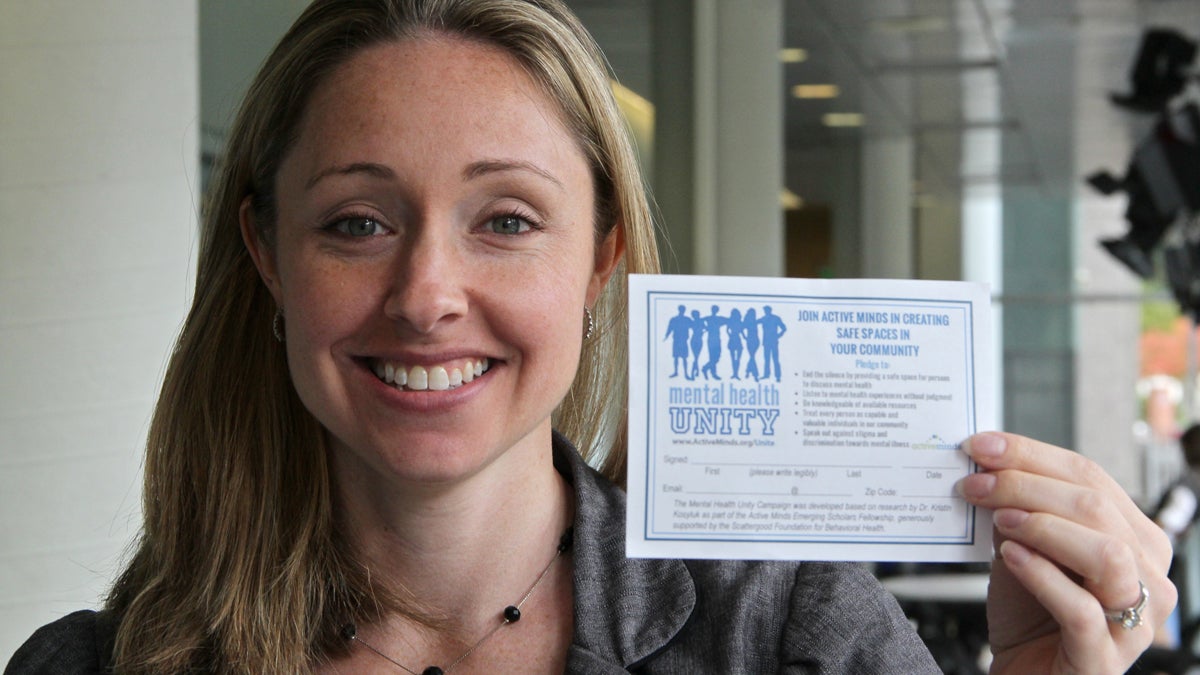Unity pledge advanced as ‘rainbow flag’ of solidarity for mental illness
Listen
Alison Malmon founder of Active Minds displays one of the pledge forms. (Emma Lee/WHYY)
The rainbow is now an internationally recognized symbol of solidarity with LGTBQ communities. The not-for-profit group Active Minds wants to create the same type of support for people with mental illness to “come out” and share their experiences.
Enter the Mental Health Unity pledge.
The group wanted to see if they could fight stigma and encourage conversations about mental illness – starting with a sticker, said Alison Malmon, Active Minds founder.
Former Active Minds Emerging Scholar Dr. Kristin Kosyluk designed the sticker after painstaking focus groups and feedback. “We didn’t want to make the mistake of assuming what would or would not work as a solidarity symbol,” said professor Patrick Corrigan, who researches stigma at the Illinois Institute of Technology. He mentored Kosyluk as a fellow. Both the Emerging Scholar program and the Mental Health Unity pledge receive funding from the Scattergood Foundation.
So, how does it work?
“After you sign the pledge, you can put in your name and address to receive a sticker to post on your wall, or on your car, or your computer – wherever you want to show people that you are creating a safe space for them,” said Molman.
Active Minds has rolled the pledge out through its website and partner organizations on college campuses, but the pledge is open to one and all.
Relationships decrease stigma
Inclusion for people with mental illness has been federal policy since the Community Mental Health Act in 1963.
But, “the true solution to erasing the stigma of mental illness is meeting people in recovery and hearing their stories of beating mental illness and accomplishing the same goals as everybody else,” said Corrigan. Contact with people who have a mental illness is two or three times more effective at decreasing stigma than simply learning more about mental illness, he said.
And contact is more important than ever now, said Corrigan, because “over the last 40 years, even though we know more about mental illness, the stigma is actually getting worse.” This information comes from population surveys that take a representative sample of the population and ask questions about people’s comfort level working or being friends with a person with mental illness.
As crucial as the creation of safe and nonjudgmental spaces, said Corrigan, is the visible support that communicates, “We stand with you.”
Anyone can take the mental health unity pledge. One in four adults in the US experiences a mental illness each year, according to the National Institutes of Mental Health.
This disclosure, the Scattergood Foundation supports programming on WHYY.
WHYY is your source for fact-based, in-depth journalism and information. As a nonprofit organization, we rely on financial support from readers like you. Please give today.

